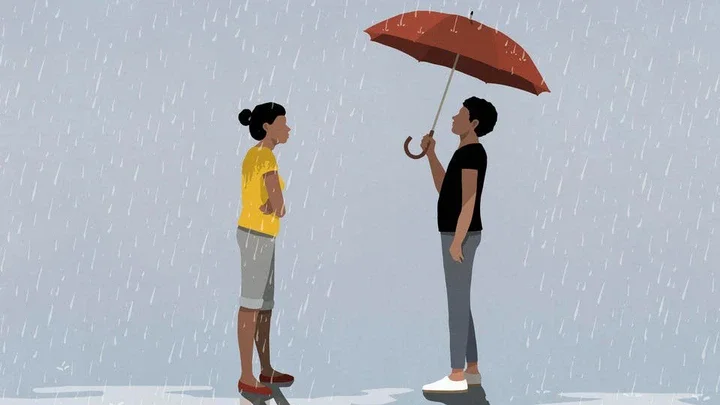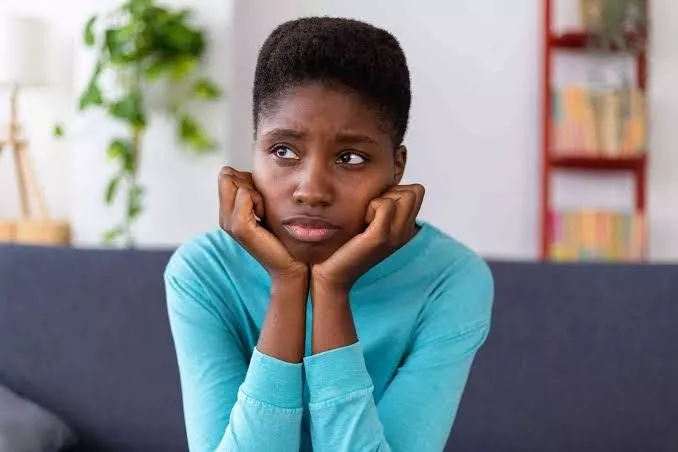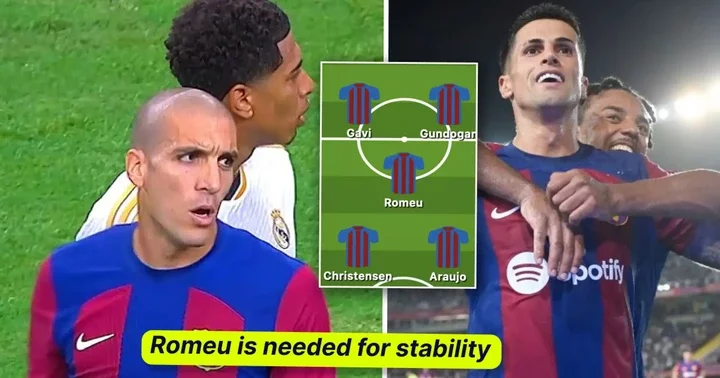
It's natural for a relationship to have days where one partner takes on more than the other. Relationships are not about keeping score or splitting everything evenly, but rather about showing up for each other in ways that feel balanced over time.
While most people recognize when they're doing too much in a relationship, like taking on all the planning, emotional labor or decision-making, it can be harder to be honest with yourself when you're the one doing too little.
This may not be very evident to you at first if it's become a habit, but it might be showing up in subtle ways in your relationship, such as you pulling back emotionally, waiting for your partner to lead or assuming they'll handle the hard parts.
This dynamic is known as "under-functioning." It's a relational pattern where one person consistently avoids responsibility, emotional presence or initiative, often without realizing it.
To build a healthy relationship, it's important to recognize such imbalances. This pattern can sneak up on you, especially when it comes from fear, burnout or not knowing where you fit into the dynamic.
Know that it is possible to shift this dynamic once you acknowledge where you may be falling short without realizing it.
Here are two signs you may be "under-functioning" in your relationship.
1. You Rely On Your Partner For Emotional Regulation
One common sign of under-functioning is emotional outsourcing. This might happen when you rely too much on your partner to manage, soothe or fix you in some way. You might find yourself waiting for them to make things feel okay when you're upset or expecting them to steer every difficult conversation.
While it's easy to think that this pattern is about being "too needy,' the truth is that it can often be rooted in deeper conditioning.
It could be how you learned, over time, that your needs would only be met if someone else stepped in. Maybe you grew up in an environment where emotions weren't handled openly, or where someone else always took the lead.
A 2024 study explored how emotional regulation difficulties might explain the link between insecure attachment styles and emotional dependence in romantic relationships.
This study specifically examined whether that relationship is indirectly shaped by a person's ability (or inability) to regulate difficult emotions.
To examine this, researchers analyzed data from over 700 young adults aged 18 to 30, comparing emotional regulation and dependence levels across three attachment styles: secure, preoccupied and dismissing.
Researchers found that individuals with a dismissing attachment style, that is, those who tend to avoid closeness and suppress emotional expression, reported both higher emotional dependence on their partners and greater difficulty regulating emotions.
This was especially true when it came to rejecting or avoiding negative emotional experiences. The study also confirmed that these difficulties with emotional regulation partly explain why dismissing attachment is linked to dependence.
These findings suggest that what may appear as emotional detachment on the surface can mask an underlying emotional reliance on partners, which is driven by an inability to process uncomfortable feelings independently.
The researchers recommend that interventions targeting emotional dependence should focus on helping individuals develop greater tolerance and management of negative emotions.
If you recognize this pattern in yourself, the solution isn't to shame yourself or to toughen up emotionally, either. The real work lies in reclaiming your emotional space. This can easily start by building your capacity to sit with difficult feelings instead of outsourcing them.
It may not seem easy at first, but you can start by naming what you feel and holding emotional discomfort without immediately needing your partner or anyone else to fix it.
While you make this shift, it's important to keep in mind that you don't need to distance yourself from your partner to do this work. You can still let them support you and walk alongside you emotionally.
The difference is that you must learn to hold space for yourself first so that their presence becomes an added layer of support and not your only lifeline.
In doing so, you make the shift from needing your partner to carry your emotional weight to inviting them into a more balanced connection. This is not just healthy for the relationship, but will also feel liberating to you individually.
2. You Lose Your Sense Of Self In The Relationship
Another telling sign of under-functioning in a relationship is when you lose your sense of self in the name of love.
This may not even look like dysfunction on the surface. While it may seem like you're being "low maintenance" or "easygoing," you may eventually feel like your voice, preferences and boundaries begin to blur or disappear altogether.
Compromise is natural in love, but self-abandonment is not. Often, what looks like "going with the flow" is really a quiet fear of disrupting the connection.
This eventually creates an invisible imbalance in the relationship. When one partner consistently under-functions by silencing themselves, avoiding disagreement or waiting for the other to lead, it shifts the emotional weight of the relationship onto the other person.
Without realizing it, the relationship can start to operate like a system of emotional over-functioning and under-functioning, where one person takes more responsibility for the emotional health of the relationship, while the other slowly disappears into passivity.
A 2019 study published in Personality and Social Psychology Bulletin, combining insights from Self-Determination Theory and Family Systems Theory, explored how two core human needs, autonomy (a sense of self-direction) and relatedness (a sense of closeness), interact in romantic relationships.
Researchers conducted three studies involving over 800 participants. They examined how these needs influenced how people responded to their partner's negative behavior, particularly whether they reacted constructively (with calm communication and accountability) or destructively (by shutting down or lashing out).
Researchers found that feeling close to a partner led to healthier conflict responses but only when participants also felt autonomous.
In other words, people who maintained a strong sense of self were more likely to communicate openly, take responsibility and stay emotionally regulated, even when things got tense.
On the contrary, those who felt close but lacked autonomy were more reactive, defensive or emotionally dependent.
These findings highlight that when you lose your sense of self in a relationship, you may appear agreeable, but you're more likely to struggle with emotional balance. This affects both you and your partner.
So, if you find yourself constantly agreeing, holding back or deferring, it's worth pausing and gently checking in with yourself. Again, the idea is not to blame yourself but rather to come to understand where you stopped showing up fully in your relationship.
Naturally, this change will not occur overnight. It does not mean you have to suddenly become louder or more assertive.
Let it begin gradually with small acts of self-acknowledgment, in moments where you choose to stay connected to your thoughts, feelings or needs, even when it feels easier to let them slide.
It might look like voicing a small opinion when you usually stay silent. Or noticing where you've started to mold yourself around someone else's comfort instead of honoring your own.
Constantly remind yourself that true closeness isn't about erasing yourself to stay connected. It's about bringing your whole self into the relationship, including all the messy feelings, deeper needs and unfiltered thoughts. That's the version of you your relationship needs, and that's where intimacy deepens.
Under-functioning doesn't always appear as clear red flags or dramatic breakdowns. It usually hides in emotional habits you quietly pick up over time, without realizing it.
Taking responsibility for these patterns starts with becoming aware of where you may be emotionally shrinking, avoiding or leaning too heavily.
Love thrives when both partners show up as themselves, whole and engaged. A truly healthy relationship is when two people are willing to meet themselves fully and then meet each other from that place.
















Comments